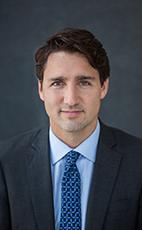Mr. Speaker, first, I would like to recognize and thank the member for Davenport, the member for Dartmouth—Cole Harbour, the member for Churchill, and other members who spoke very eloquently about my initiative.
I would also like to recognize the members from the government side of the House who spoke very eloquently and passionately about the importance of volunteerism, the importance of service and the importance of young people.
It is a great honour to be able to be here and, more importantly, to be able to tell the people of Papineau that we have achieved something important. For two hours in this House, the topic of debate was young people. We talked about the future, volunteering, and the involvement of young people in their communities and in society. Regardless of the results of the vote on this matter, young people have been the focus, have been validated and encouraged for two hours. That is in itself a victory for the young people of Papineau and all young Canadians. This has been possible thanks to the trust that the people of Papineau have placed in me.
I would like to talk about this motion. I propose referring the matter to committee in order to study a policy, not a program or any sort of interference, but a policy whereby this Parliament, this government, would engage young people in building our country. That is what is needed. That is the answer to the major problems ahead. We live in a world with so many challenges and we have to start making major changes in terms of the environment, the economy and justice for the most vulnerable members of society. We must cultivate a new way of thinking.
Albert Einstein once said that the problems we have created for ourselves cannot be solved at the level of thinking that created them. If we are to bring in to the House, to the country, to the world a fresh level of thinking, it must be through our young people. It must be in our capacity to give to our young people the chance to express themselves, not just through their voices but through their actions, day in and day out, of shaping this world to be better, stronger, fairer, more responsible toward the long term.
Our capacity to do that depends on the kind of vision that drives us in the House. The one thing that will happen when we get more young people involved in their communities, connected to their world and engaged and interested in what politics has to offer them, is we begin to shift in our thinking toward being more responsible to the kinds of things they are worried about, which are all the big picture, long-term issues. We shift away from the fight over what is urgent and what is immediate and start involving and encouraging talk about what is important and what is long term about the country we are trying to build.
After the first hour of debate, I was asked by a member opposite if I was trying to generate something that we were giving to young people, was it about turning President Kennedy's expression on its head and actually trying to get government to do for youth what we could? The problem is youth are asking what they can do for their country every day.
Every year tens of thousands of young people ask what they can do for their county, and every year we in the House have an inadequate response because we are not giving them the opportunities to do what they want to do, which is serve, build, create the Canada we need for our children and their children. The kinds of thinking we need to bring forward will happen only when we have young people committed, engaged, involved, powerful citizens and agents of change shaping their world.

